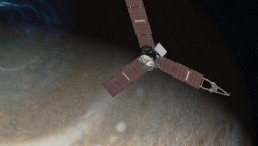Radiation therapy is one of the best modern treatments to provide a healthier and more functioning heart. In a recent study, it was revealed that radiation therapy could also impact the muscle cells contained in the heart itself, making the overall structure of the pumping core younger than ever. The radiation treatment is found better than the typical, invasive approach, as it directly targets electrical problems in the heart that commonly heightens the risks of cardiovascular diseases such as arrhythmia.
Catheter Ablation vs Radiation Therapy

The new research confirms that there is a much better method than catheter ablation or the threading and burning of the heart for treatment. Although catheter ablation is an effective way of making the irregular heart rhythm or ventricular tachycardia be gone of our of the heart, there are serious side effects that await the success of the procedure. For example, parts of the heart could be permanently scarred upon surgery.
The research on the new heart treatment involves a better option for arrhythmia patients. It involves a cellular programming technology that could be processed with a little amount of radiation. The therapy is less invasive and determined to be less harmful than traditional surgical choices. The radiation alternative could also support further studies that attempt to develop more ministrations against the various type of cardiac arrhythmia.
The scarring method that is commonly processed during catheter ablations could also be achieved by radiation therapy. But alongside the essential step, there are no harmful and invasive procedures the patients will worry about in the future. Moreover, the new radiation therapy could also increase the chances of successful treatments and prevent further damage to patients that were diagnosed with severe cardiovascular conditions.
Efficacy of Radiation Therapy Against Cardiac Arrhythmia
The experts were able to observe the preceding effects of the radiation treatment. According to the report by Futurity, most of the patients that participated in the examinations had large improvements in their arrhythmias. The betterment of their heart conditions manifested just a few days after going through the procedure. The results confirmed that just a single session of the therapy could significantly reduce the condition. In addition, there were no scar tissues formed in the process.
Washington University's biomedical engineer, biology, and cardiovascular medicine expert Stacey Rentschler, who was also the senior of the study, said that catheter ablation is known to leave scar tissues that usually block electrical circuits. When this happens, the scars lead to an abnormal heart rate or even ventricular tachycardia. To secure the efficacy of the new radiation therapy, an experiment was conducted with the help of participants who suffer from arrhythmia. The team was given permission to perform an operation if ever the analysis failed and caused the patients to die. Fortunately, the observation was a success, and instead of leaving long-term issues, radiation therapy was found to treat the arrhythmia of the participants.
The radiation therapy worked by triggering the heart's muscle tissues to express numerous genes that are capable to assist the electrical conduction in the cardiovascular system. The study was published in the journal Nature Communications, titled "Cardiac radiotherapy induces electrical conduction reprogramming in the absence of transmural fibrosis."
RELATED ARTICLE: Sibling Bullying Results to Introvert Personality and Other Psychological Health Issues In Adolescence, Study Finds
Check out more news and information on Medicine and Health in Science Times.














